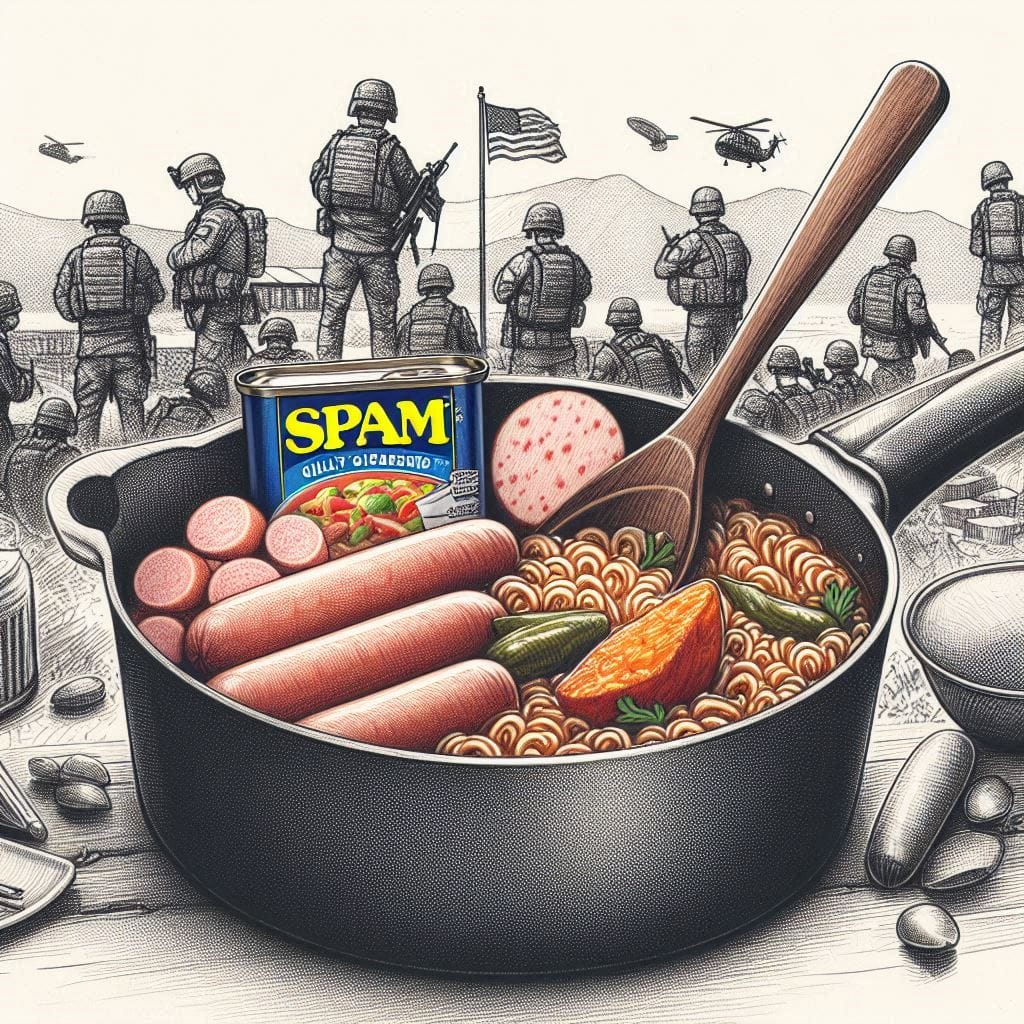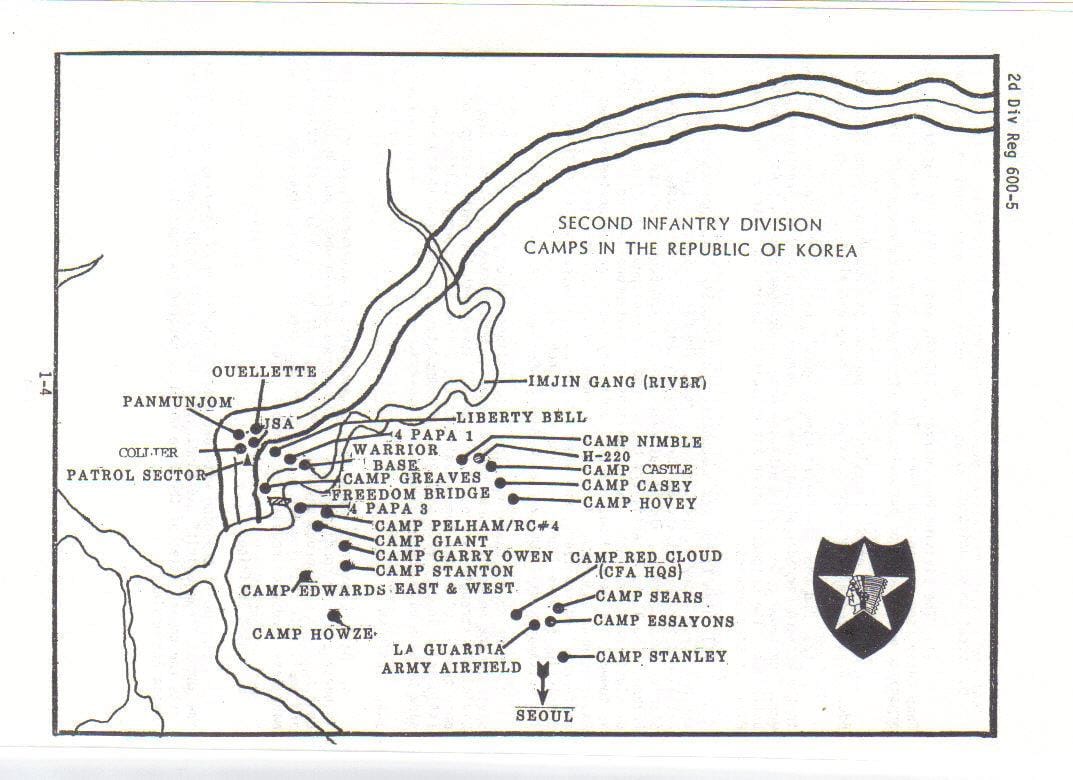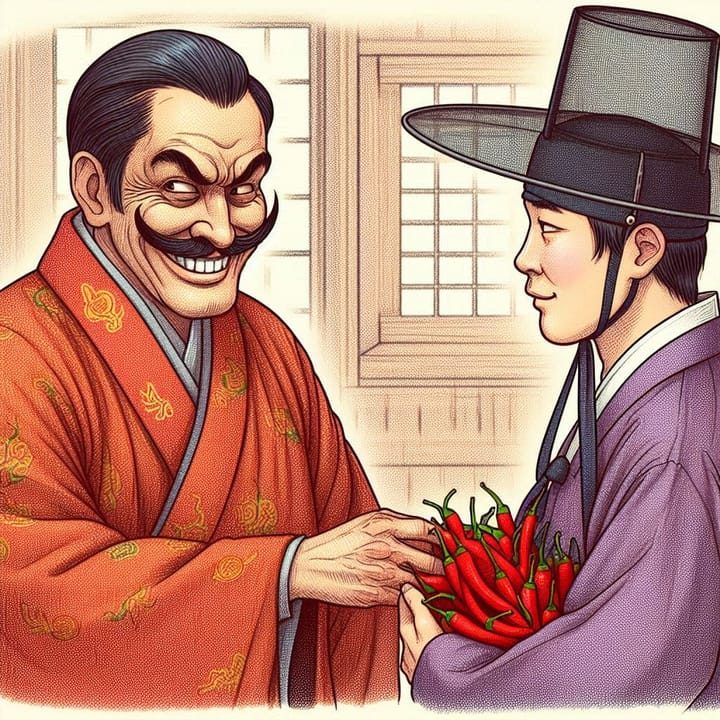Army Stew is NOT made from food scraps
The Influence of U.S. Forces in Korea

After the Korean War armistice, Koreans created a new meal called "Army Stew" during a time of food scarcity using surplus ingredients like Spam, sausages, and chili beans obtained from U.S. military bases, combined with traditional Korean foods like kimchi and vegetables. While the exact origins are unclear, the location of famous “Army Stew” restaurants near U.S. bases suggests a link. Although some claim the dish initially used food scraps from their army kitchens, it is a legitimate and popular part of Korean cuisine today, so there's no need to worry about its ingredients.😅
The U.S. military presence has significantly influenced Korean society. Initially arriving to disarm Japanese troops after WWII, U.S. forces withdrew before the Korean War but returned under the UN flag. Post-1953 armistice, the U.S. and South Korea signed a mutual defense treaty, solidifying the U.S. military's legal presence. Over the years, troop numbers have fluctuated, with significant reductions in combat units starting in the 1970s.

The photo shows the Western Corridor area stretching from Panmunjom(JSA) to Seoul. It once teemed with countless U.S. military bases. Over time, the fighting units of the only combat division here, the U.S. 2nd Infantry Division(Indianhead), have been closed or merged into other units since the 2000s. In the early '90s, during my days at Camp Casey, we had about 40,000 U.S. troops stationed in Korea. Now, that number has dwindled to 28,000. More importantly, the number of combat units has been significantly reduced.
Areas like Itaewon, located right next to the U.S. military base in Seoul, became cultural hubs, introducing American culture and products to Korea. AFKN(American Forces Korea Network) broadcasts also played a role in cultural exchange. However, the U.S. military presence has not been without controversy, with incidents involving U.S. personnel and environmental issues igniting public outcry.
Despite these challenges, the U.S. military serves as a critical deterrent against North Korean provocations, contributing to a long-standing armistice. In the meantime, recent agreements on the cost-sharing for U.S. troops in Korea reveal diverse opinions on their presence. Some, weary of financial burdens, lean towards an independent path with our own nuclear arms development. Others insist that the U.S. military presence is vital to our security and economy, regardless of price.
In conclusion, the U.S. military forces in Korea continue to play an essential role in maintaining peace on the Korean Peninsula, and they are appreciated by many for their contributions to regional stability.✔️




Comments ()